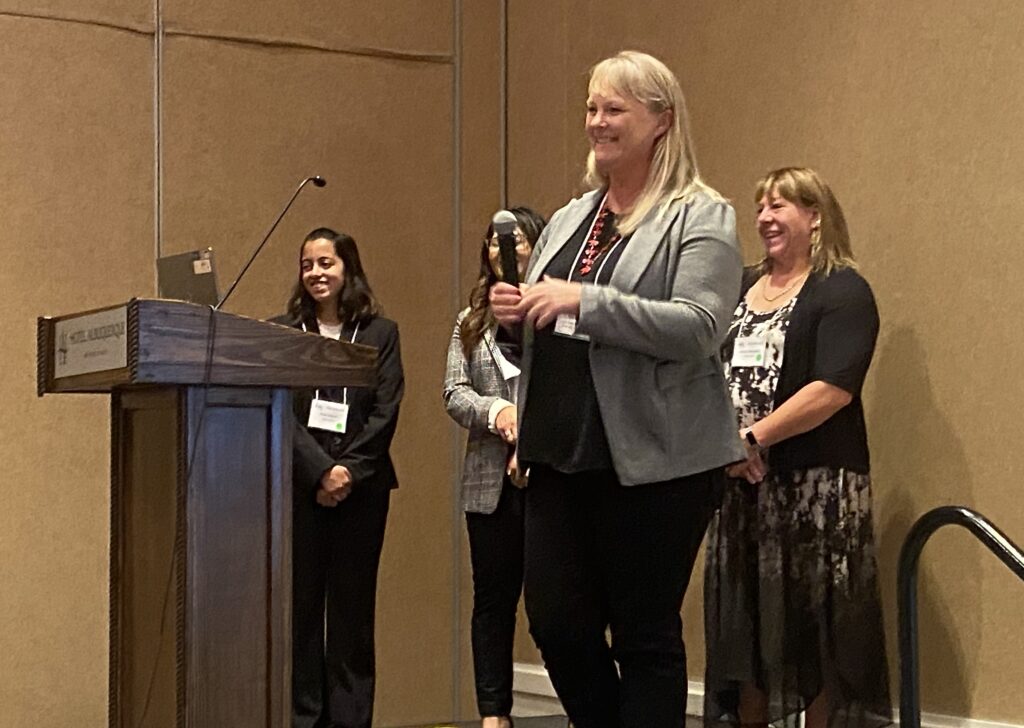Two programs within the USDA’s National Institute of Food and Agriculture are recognized for their service to tribal communities.
By Native Science Report news staff

The federal Office of Tribal Relations acknowledged two teams within the USDA’s National Institute of Food and Agriculture for their “unwavering commitment to elevating tribal interests.”
The office awarded Team Leader Mallory Koenings and her staff of 12 for establishing a new evaluation protocol for selection of projects to fund under the Gus Schumacher Nutrition Incentive Program. The revised protocol gave preference to proposals serving historically underrepresented communities, securing their win of the 2023 Tribal Innovation Award on Removal of Barriers.
The change resulted in a three-fold increase in the number of awards serving tribal communities, according to a NIFA announcement. Tribal nations receiving support from the program now include the Navajo Nation, Yukon-Kuskokwim Delta, Great Plains Area, Cheyenne River Sioux, Confederated Salish and Kootenai Tribes, and Blackfeet Nation.
The program aims to increase the purchase of fruits and vegetables to improve health among low-income consumers. Participants in the program generally report higher fruit and vegetable consumption than the average US adult.
A second 2023 USDA Nation to Nation Tribal Innovation Award, this one for Tribal Innovation for Extraordinary Tribal Engagement, went to NIFA’s Tribal Programs, headed by Erin Riley and her a staff of three.
Riley took over the position vacated by Tim Grosser just in time for a period of turmoil. In 2019, the Trump administration forced NIFA to move from its Washington, DC, office, requiring employees to commit to a move even before they knew the new location would be Kansas City, Missouri. The 2019 shift left NIFA with a skeleton crew of about a third of its former employees.
Riley received enthusiastic applause from the tribal college and university representatives at the 2019 meeting of the First American Land-Grant Consortium for her commitment to stay and ensure that tribal programs continue to receive funding. After years of shouldering the increasing work load on her own, Riley introduced her three new staff members to help with the various projects during the consortium’s annual conference in 2022.
The team of four provides ongoing assistance to three dozen tribal colleges and universities with Extension, Research and Equity/Education grants supporting agriculture and natural resources. Special Emphasis and New Beginnings projects also fall under their purview. The Tribal Programs Team also assists other institutions providing formal education and community-based learning to tribal communities.
Early in 2023, the USDA moved the Tribal Programs Office back to Washington, DC, putting it under the Office of Tribal Relations. The change occurred after presidents of tribal colleges and universities and other tribal leaders made the request, arguing that the institutions are created and owned by tribal nations.
Story published January 22, 2024
• • •
Enjoyed this article? Enter your email to receive notifications.
